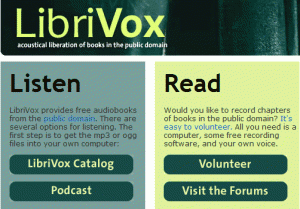Publishing Talks: David Wilk interviews Hugh McGuire
May 1, 2011 by David
Filed under Ebooks and Digital Publishing, Publishing History, PublishingTalks, Technology, The Future
 In this series of interviews, called Publishing Talks, I have been talking to book industry professionals and other smart people about the future of publishing, books, and culture. This is a period of disruption and change for all media businesses. We must wonder now, how will publishing evolve as our culture is affected by technology, climate change, population density, and the ebb and flow of civilization and economics?
In this series of interviews, called Publishing Talks, I have been talking to book industry professionals and other smart people about the future of publishing, books, and culture. This is a period of disruption and change for all media businesses. We must wonder now, how will publishing evolve as our culture is affected by technology, climate change, population density, and the ebb and flow of civilization and economics?
I hope these Publishing Talks conversations can help us understand the outlines of what is happening in the publishing industry, and how we might ourselves interact with and influence the future of publishing as it unfolds.
These interviews give people in and around the book business a chance to talk openly about ideas and concerns that are often only talked about “around the water cooler,” at industry conventions and events, and in emails between friends and they give people inside and outside the book industry a chance to hear first hand some of the most interesting and challenging thoughts, ideas and concepts being discussed by people in the book business.
Hugh McGuire is a serial digital entrepreneur. There’s a great story about him and an online interview at NextMontreal, in which the focus of the conversation is a company he started a few years ago called Book Oven, aiming to build an online book publishing platform. That particular venture did not meet expectations, but it’s a great story for anyone interested in digital publishing and start-up businesses in publishing (and resulted in a very cool tool called PressBooks, that “lets you and your team easily author and output books in multiple formats including: epub, Kindle, print-on-demand-ready PDF, HTML, and inDesign-ready XML.”)
Hugh is also the founder of the outstanding free audio book LibriVox, which currently features perhaps the largest catalog of audio books drawn from the public domain. It’s a great service and operates on open source principles. In addition to LibriVox, Hugh has also started and now runs a for-profit audio book business called Iambik, which shares many principles with LibriVox except in its profit goals, which of course drives a different business model.
What prompted me to contact Hugh now is the recent and terrific guest piece he wrote called What are Libraries For? for the outstanding blog In the Library with the Leadpipe (subtitled: The murder victim? Your library assumptions. Suspects? It could have been any of us.) This piece has so much great stuff in it (and is so well written and clear), that it’s a must-read for anyone interested in the future of publishing, books and readers (and In the Library is a great discovery too).
You may not agree with all of Hugh’s assumptions, nor his conclusions (I mostly do), but what he says will make you think hard about the digital future and what it will mean to libraries and every other institution in the book to reader supply chain. I’d be happy to hear from Writerscast listeners what you think of Hugh’s article after you read it. Comments are open.
Here’s the first graph of Hugh’s essay: “Ebooks will become the dominant form of casual reading for adults at some point in the future1. When this happens, community and public libraries will face a major existential crisis, because a fundamental (perhaps the fundamental) function of community libraries—lending print books—will no longer be a fundamental demand from the community. Libraries that do not adjust will find their services increasingly irrelevant to the populations they serve.”

Podcast: Play in new window | Download
Publishing Talks: David Wilk interviews Peter Brantley
September 12, 2010 by David
Filed under Ebooks and Digital Publishing, PublishingTalks, The Future
 In this series of interviews, called Publishing Talks, I have been talking to book industry professionals and other smart people about the future of publishing, books, and culture. This is a period of disruption and change for all media businesses. We must wonder now, how will publishing evolve as our culture is affected by technology, climate change, population density, and the ebb and flow of civilization and economics?
In this series of interviews, called Publishing Talks, I have been talking to book industry professionals and other smart people about the future of publishing, books, and culture. This is a period of disruption and change for all media businesses. We must wonder now, how will publishing evolve as our culture is affected by technology, climate change, population density, and the ebb and flow of civilization and economics?
I hope these Publishing Talks conversations will help us understand the outlines of what is happening, and how we might ourselves interact with and influence the future of publishing as it unfolds.
These interviews give people in and around the book business a chance to talk openly about ideas and concerns that are often only talked about “around the water cooler,” at industry conventions and events, and in emails between friends and they give people inside and outside the book industry a chance to hear first hand some of the most interesting and challenging thoughts, ideas and concepts being discussed by people in the book business.
Peter Brantley is the Director of the Bookserver Project at the (totally cool) Internet Archive, a San Francisco-based not for profit library. He contributes regularly to several blogs on libraries and publishing, discussing transformations in media and information access. He serves on the board of the International Digital Publishing Forum, the standards setting body for digital books. Peter has significant experience with academic research libraries and digital library development programs, and was previously the Executive Director of the Digital Library Federation, a not for profit membership organization of research and national libraries.
As Peter pointed out to me recently, the word “rant” is a part of his name. So we could expect him to have something interesting to say about almost any subject related to books and the digital landscape. I think that comes across well in our talk. He brings to bear his experience as a librarian but also has a broad perspective on many subjects simply because he pays attention to so many ideas and developments across a wide spectrum of subject areas and interest groups. We had a lot of fun talking together, and hope listeners will enjoy our talk as well.
I am happy to say that this is the 100th post on Writerscast, a milestone of sorts, I suppose.
Podcast: Play in new window | Download
